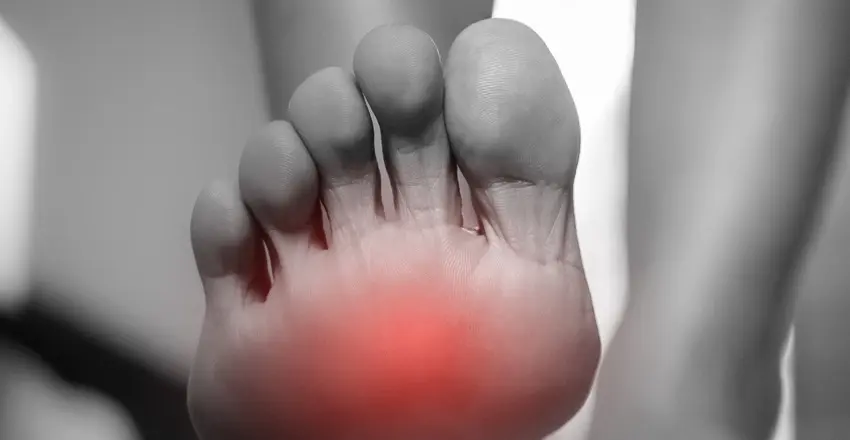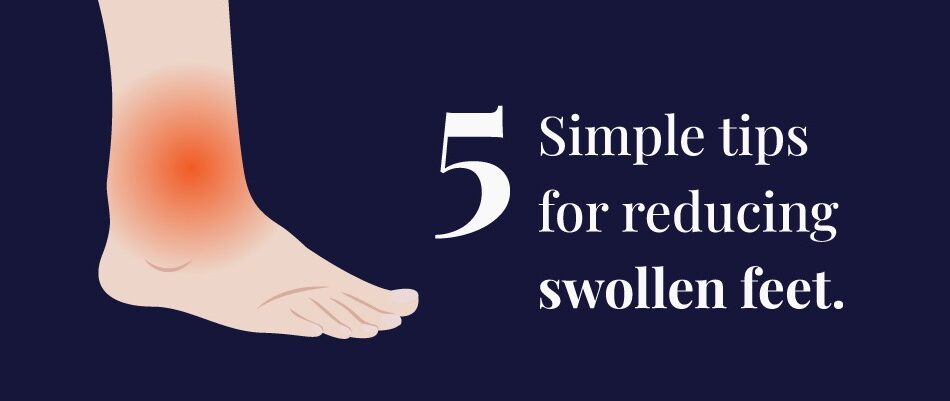Obese individuals often experience swollen feet due to excess body weight exerting pressure on their lower extremities. Poor circulation and fluid retention also contribute to this condition.
Having swollen feet can be distressing and uncomfortable, especially for people carrying extra weight. Obesity complicates the body’s ability to circulate blood and fluids effectively, making swollen feet a common issue among overweight individuals. This swelling, medically known as pedal edema, often worsens with prolonged standing or sitting.
It signals the need for lifestyle changes, dietary adjustments, and possibly medical intervention. Addressing obesity and the associated symptom of swollen feet not only improves overall health but also enhances mobility and quality of life. It’s essential to consult healthcare professionals who can provide guidance tailored to individual health conditions and weight management goals. Managing obesity and reducing foot swelling involves a comprehensive approach that may include nutrition, exercise, and sometimes medication.

Credit: lymphysio.com
The Link Between Obesity And Foot Swelling
The Link Between Obesity and Foot Swelling is a health concern drawing growing attention. Swollen feet, or foot edema, is not merely uncomfortable. It can signal underlying health issues, particularly in individuals with obesity. This swelling results from fluid accumulation in the tissues, leading to discomfort and limited mobility.
Common Causes Of Foot Edema In Obese Individuals
- Venous insufficiency: Weight increases pressure on leg veins, impairing circulation.
- Lymphatic system overload: Excess fat strains the lymphatic system, hindering fluid regulation.
- Inflammation: Obesity often accompanies chronic inflammation, exacerbating swelling.
How Excess Weight Affects Foot Health
Carrying excess weight has a direct impact on foot health. The extra pounds exert more force on the foot with every step. This persistent stress can lead to structural changes and increased injury risk. Compounded by the commonality of sedentary lifestyles among those dealing with obesity, the feet suffer from a lack of proper muscle support and circulation, fostering conditions ripe for swelling.
Overall, understanding the relationship between obesity and foot swelling emphasizes the need for effective weight management strategies. Addressing obesity not only alleviates foot edema but enhances overall health and well-being.
Symptoms And Complications Of Swollen Feet
Swollen feet can be more than just an inconvenience for those dealing with obesity. This condition, often a sign of underlying health issues, can lead to discomfort and even more serious complications if left unchecked. Understanding the symptoms and potential long-term implications is vital.
Identifying Signs Of Abnormal Foot Swelling
It’s crucial to recognize the difference between normal and abnormal swelling. Normal swelling might happen after standing for long. But, abnormal swelling looks and feels different.
- Feet look puffy.
- Shoes feel tight.
- Skin over feet seems stretched.
- Pressure from socks leaves a mark.
Potential Long-term Issues Caused By Untreated Edema
Edema is the medical word for swelling. If not treated, it can lead to problems.
| Issue | Explanation |
|---|---|
| Pain | Swelling can press on nearby areas and hurt. |
| Infection | Swollen skin can crack and let germs in. |
| Mobility Issues | Big, stiff feet can make walking hard. |
| Chronic Conditions | Things like heart failure or kidney disease can get worse. |
Basic Self-care Strategies For Relief
Swollen feet can be uncomfortable and disabling. Many people with obesity face this challenge. Let’s talk about easy steps for easing swollen feet. Remember, small changes can make a big difference.
Importance Of Elevation And Movement
Keeping your feet up helps with swelling. It makes it easier for fluids to move away from your feet. Try to elevate your feet above your heart for 20 minutes, 3 times a day.
Including movement in your daily routine can enhance circulation. Simple exercises like wiggling your toes and rotating your ankles boost blood flow. Aim to take short walks every hour to help reduce swelling.
- Elevate your feet: Use cushions or a footstool.
- Toe wiggles and ankle rotations: Do them sitting or lying down.
- Regular walks: Even short ones are beneficial.
Appropriate Footwear Choices And Sizing
Choosing the right footwear is key when dealing with swollen feet. Shoes that are too tight can make swelling worse. Conversely, well-fitted shoes support and reduce foot strain. Look for shoes with adjustable straps or laces for the perfect fit.
| Feature | Benefit |
|---|---|
| Wide Toe-Box | Less pressure on toes |
| Adjustable Straps/Laces | Customize fit as swelling changes |
| Good Arch Support | Improves balance and support |
Always try on shoes later in the day when feet are more likely to be swollen. Make sure to measure both feet, since one can be larger than the other.
Tips:
- Measure your feet every time you buy shoes.
- Choose shoes with a cushioning sole for comfort.
- Talk to a specialist about custom orthotics.

Credit: www.michiganpodiatry.com
Dietary Considerations For Reducing Swelling
Dietary considerations play a crucial role in managing swollen feet for the obese. The right food and drink choices can help reduce inflammation. They can also support the body’s natural ability to regulate fluid levels. Let’s dive into the dietary shifts that can make a significant difference.
Balancing Salt Intake And Hydration Levels
Excessive salt in the diet can lead to water retention. This can worsen swelling in the feet. Cutting back on salt is essential. You should aim for no more than 2,300 milligrams per day. That is about one teaspoon of salt. But don’t forget to drink water! Hydration is key to helping your body flush out excess sodium.
- Choose low-sodium options: Look for foods labeled “low sodium” or “no salt added.”
- Cook at home: You can control how much salt goes into your meals.
- Sip regularly: Keep a water bottle at hand to remind yourself to drink.
Nutrients That Support Vascular Health
Nutrients can support your blood vessels. They keep them strong and elastic. Here are some key nutrients you should include in your diet:
| Vitamin | Food Source | Effect |
|---|---|---|
| Vitamin C | Citrus fruits, strawberries, bell peppers | Helps with collagen production for vessel walls |
| Flavonoids | Onions, kale, grapes | Improves vein health |
| Omega-3 Fatty Acids | Salmon, flaxseeds, walnuts | Reduces inflammation |
Integrating these nutrients can support overall vascular health. This can help reduce swelling in your feet. Aim to get a variety of these foods into your weekly diet.
When To See A Healthcare Professional
Dealing with obese and swollen feet can be challenging. Sometimes, these symptoms may signal a need for professional healthcare advice. Recognizing the right time to seek help is crucial for your health and well-being. This section covers essential information on when to see a healthcare professional for obese and swollen feet.
Warning Signs Indicating Medical Attention Needed
Do not ignore these warning signs:
- Persistent swelling not improving with rest
- Pain that disrupts daily activities
- Changes in skin color or temperature
- Feeling of heaviness or tingling in the feet
- Ulcers or wounds that won’t heal
What To Expect During A Professional Evaluation
A professional evaluation is thorough:
- Review of your medical history
- A physical examination of the feet
- Possible blood tests for underlying conditions
- Assessment of your heart and vascular health
Wear comfortable shoes to your appointment.
Write down any symptoms, even those seeming unrelated.
Be prepared to discuss lifestyle and diet.
Advanced Treatment Options And Therapies
Exploring the realm of advanced treatment options and therapies for obese and swollen feet brings hope to many. These strategies aim to reduce discomfort, improve mobility, and enhance quality of life. Cutting-edge medical advances, combined with holistic lifestyle approaches, open doors to effective management of this condition.
Medical Interventions For Severe Cases
Severe swelling and obesity-related foot issues often necessitate professional medical treatment. These conditions can escalate, requiring targeted interventions to prevent further complications.
- Bariatric surgery – for significant weight loss.
- Compression therapy – reduces swelling and pain.
- Medications – manage symptoms and underlying causes.
- Lymphedema pumps – aid in fluid circulation.
- Custom orthotics – provide support and alleviate pressure.
Integrative Therapies And Lifestyle Modifications
A multifaceted approach often yields the best outcomes for swollen feet due to obesity. Below are key integrative therapies and lifestyle changes that can make a significant difference:
| Lifestyle Change | Benefit |
|---|---|
| Regular exercise | Boosts circulation, aids in weight management |
| Healthy diet | Reduces obesity, supports overall health |
| Elevation of feet | Decreases swelling, offers relief |
| Hydration | Enhances tissue health, flushes toxins |
| Stress management | Alleviates tension, promotes healing |
Moreover, therapies like massage, yoga, and acupuncture serve as valuable adjuncts. These practices encourage relaxation, improve lymph flow, and contribute to overall foot health.

Credit: pharmeasy.in
Frequently Asked Questions For Obese And Swollen Feet
What Causes Swelling In Obese Feet?
Swollen feet in obese individuals can often result from poor circulation, lymphatic blockage, or pressure on blood vessels from excess body weight. Simple factors like prolonged standing or sedentary lifestyle also contribute to swelling.
Can Weight Loss Reduce Foot Swelling?
Yes, weight loss can significantly reduce foot swelling. By decreasing body mass, there is less pressure on the circulatory system, improving blood flow and reducing fluid accumulation in the feet.
Are Swollen Feet A Sign Of Serious Health Issues?
Swollen feet can be a sign of serious health conditions, such as heart failure, kidney disease, or liver problems. It’s crucial to consult a doctor for a proper diagnosis if swelling is persistent or accompanied by other symptoms.
How Can Diet Affect Foot Swelling In The Obese?
Diet can greatly affect foot swelling. Reducing salt intake helps minimize water retention, while a balanced diet aids in weight management and overall circulation, leading to less swelling in the feet.
Conclusion
Dealing with obesity and foot swelling can be challenging. It’s essential to maintain a healthy lifestyle, focusing on diet and exercise. Consult your healthcare provider for personalized advice. Remember, taking the first step towards better health can make all the difference.
Don’t hesitate to seek support and take control of your well-being.


